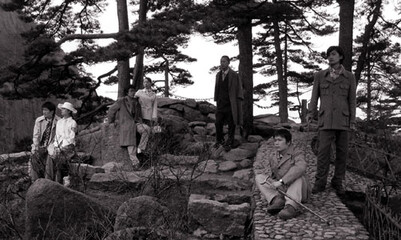Project Galerie Nordenhake, Mexico City, Mexico
The projection will be held in two sessions, in which different films will be presented each day. The screening program brings together an international group of artists who consider the relationship between the built and natural environment, the traffic between city and countryside, and the embattled ideological currents circulating through this multi-form flow. At the beginning of each session, the curator Samantha Ozer will discuss the themes and ideas surrounding the films.
The COVID-19 pandemic has prompted an increasing awareness that the dominant modes of human life are no longer tenable. This extended moment of stress and isolation forces many to confront their living conditions and demands a broader reconsideration of the presupposed divisions between cities and the countryside, culture, and nature. While rural terrain is often romanticized through lexicons replete with pastoral imagery, it is also highly regulated—it is the place of deforestation, fracking, mining, factory farming, imminent urbanization, and countless other forms of resource extraction, in which humans often engage with other species violently.
Samantha Ozer (New York, 1996) is an independent curator, producer, and writer, based between London, Mexico City, and New York. As a curatorial member of The Racial Imaginary Institute, she recently co-curated the online exhibition Listening for the Unsaid in collaboration with the David Kordansky Gallery. As a former curatorial assistant at MoMA PS1, she worked on the exhibitions Theater of Operations: The Gulf Wars 1991-2011, Marking Time: Art in the Age of Mass Incarceration, and Niki de Saint Phalle: Structures for Life. Researcher and writer for the Poetic Justice group at the MIT Media Lab. Her writing has appeared in Artforum, PIN–UP magazine, Shifter journal, and Texte Zur Kunst.



